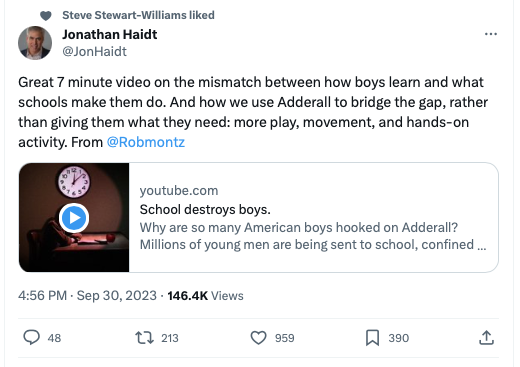Rob Henderson: The Costs of Luxury Goods Are Not Always Obvious
Rob Henderson, writing at The Free Press:
I’ve long argued that many people who hold “luxury beliefs”—ideas and opinions that confer status on the upper class, while often inflicting costs on the lower classes—are oblivious to the consequences of their views. Support for defunding the police is a classic example. Luxury beliefs can stem from malice, good intentions, or outright naivete. But the individuals who hold those beliefs, the people who wield the most influence in policy and culture, are often sheltered when their preferences are implemented.Some online commenters have said that my luxury beliefs thesis is undermined by these tragic events, because the victims were affluent and influential—and they still suffered the consequences of their beliefs.
But the fact remains that poor people are far more likely to be victims of violent crime. For every upper-middle-class person killed, 20 poor people you never hear about are assaulted and murdered. You just never hear about them. They don’t get identified by name in the media. Their stories don’t get told.
According to the U.S. Census Bureau, the poorest Americans are seven times more likely to be victims of robbery, seven times more likely to be victims of aggravated assault, and twenty times more likely to be victims of sexual assault than Americans who earn more than $75,000. One 2004 study found that people in areas where over 20 percent of inhabitants live in poverty are more than 100 times more likely to be murdered than people in areas where less than 10 percent of residents live in poverty.

